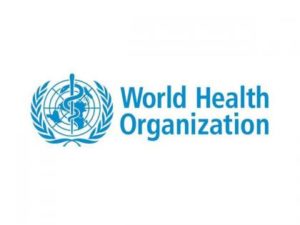
The World Health Organisation (WHO) on August 30 listed the Mu Covid-19 variant as a ‘variant of interest’.
The WHO on Aug 30 added the Mu variant– known by scientists as B1621– to the list of “variants of interest” because of preliminary evidence that it can evade antibodies, reported The Straits Times.
The Mu variant has a “constellation of mutations that indicate potential properties of immune escape,” noted a WHO weekly update published on August 31.
All viruses, including SARS-CoV-2 which causes COVID-19, mutate over time and most changes have little or no effect on the properties of the virus.
But certain mutations can alter how easily a virus spreads, the severity of the disease it causes, or its resistance to vaccines and drugs.
The WHO’s variant of interest (VOI) designation suggests that the strain has genetic changes that may affect virus characteristics, such as increased transmissibility, disease severity, immune escape, diagnostic or therapeutic escape, reported The Straits Times.
VOIs have also been identified to cause significant community transmission or multiple Covid-19 clusters in multiple countries. Other VOIs named by the WHO include Eta, Iota, Kappa and Lambda.
The WHO also lists four coronavirus variants of concern (VOCs): Delta, Alpha, Beta and Gamma.
Mu was first identified in Colombia in January. About 4,500 cases of the Mu variant have been reported across the globe, with more than half of them discovered in the United States. It has also been reported in other South American countries, Europe, Japan and Hong Kong, reported The Straits Times.
The variant was responsible for Colombia’s deadly third infection wave between April and June. During this period, with about 700 deaths per day, nearly two-thirds of tests from people who died came back positive for the Mu variant, said Colombian health official Marcela Mercado on September 2.
The Mu variant, already in more than 43 countries and areas, has shown high contagiousness.
Preliminary data shows that Mu may more easily evade vaccine protection, similar to that seen for the Beta variant, first discovered in South Africa, reported The Straits Times.
( With inputs from ANI )




 Driving Naari Programme launched in Chandigarh
Driving Naari Programme launched in Chandigarh






























